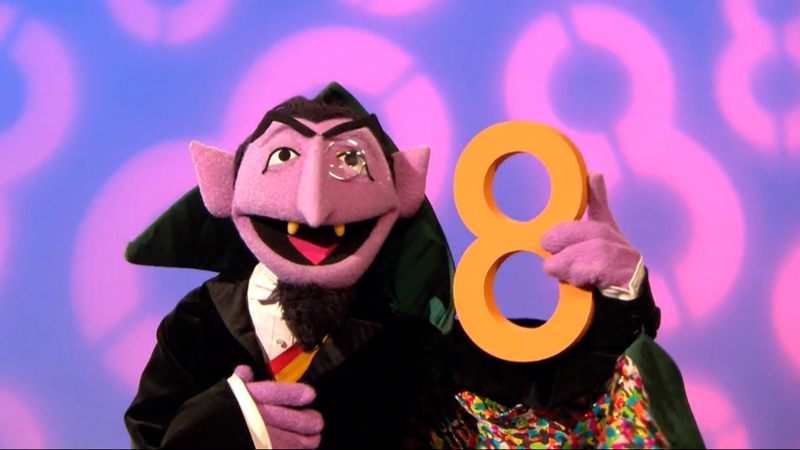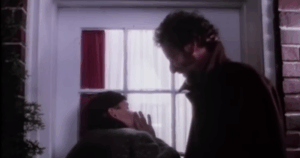We all know The Count as the lovable vampire who’s always ready to give a lesson about numbers, but his well-known shtick wasn’t always so clear-cut. Here are four times The Count really botched a moral lesson before he was ultimately limited to just being the counting character.
1. The time The Count tried to teach a lesson about honesty by bringing a kid with clubfoot onstage and making everyone say what they thought about it: Things had been going as planned on an episode of Sesame Street on January 15, 1970, when The Count took his first crack at stepping up as a moral voice on the still-young show. During a planned segment in which The Count was set to teach kids about the number four by counting four bats flying around his head, The Count suddenly barked, “Stop bothering me,” at the circling bats before calling all of the kids around him in a huddle, repeatedly saying, “I have a message for the children.”
Once the kids were rounded up, he pointed toward a child offstage with crutches, waved him over to stand in the middle of the group, and then asked him to please remove his left shoe and sock. When the clubfoot was finally unveiled, everyone tried their best to react as politely as possible before The Count announced in his signature Romanian accent, “Do not hold back. We are all looking at what’s called a Monster’s Leg, and it is terrifying. Everyone will stand up one at a time and shout what you think about his misfortune. Remember what The Count is begging you: Never lie, even to people with cursed feet.”
Everyone at the Sesame Workshop was pretty mortified by the whole ordeal, and it would only take a few more instances of completely blowing a moral lesson before The Count would be completely relegated to being just the counting character.
2. The time it seemed like The Count was teaching the importance of sharing pretty well by giving everyone some of his food until he insisted that the lesson was actually that you should only trust food that The Count has touched: While Grover was explaining “imagination,” the word of the day for the June 12, 1973 episode, The Count interrupted by taking his next crack at emerging as a moral guide. Just as Grover was wrapping up before a commercial break, The Count wheeled a cart of hamburgers into frame and loudly announced, “Come one, come all. These hamburgers belong to me, but it’s not right to keep them all to myself. I must give them to everyone.” The kids came excitedly running to eat the burgers while the rest of the Sesame Street characters walked into the scene, too, each supporting The Count’s surprise lesson by saying things like, “Wow, Count, it was so nice of you to share your food,” or “Sharing with friends is very important.” It was beginning to look like The Count had really nailed a great lesson until he finally spoke up and declared, “I do not know what any of you mean and I don’t care. Children, remember this lesson: You should only eat food that The Count has personally touched. I have had my hands on the meats, on the buns, and in every one of the sauces you taste. Remember this and you will live forever,” then delivered his classic hearty laugh.
The other characters kept trying to push the sharing narrative after the vampire’s off-base explanation, but The Count would follow each one up with “Never listen to them,” ultimately strengthening the case that the higher-ups were building in order to eventually delegate him as the counting character only.
3. The time The Count tried teaching a lesson about respect by asking a kid for his shirt and selling it back to him for $200: Sesame Street was still early in its run on September 20, 1973, when The Count really fucked up his next moral lesson. Toward the end of the episode, Big Bird had gathered everyone around a stoop and was explaining how sometimes “family” means more than just the people you’re related to, when The Count suddenly muttered to the kid next to him, “Let me see your shirt now.” The naïve kid coughed up his shirt, and once it was in his hands, The Count didn’t hesitate in cutting Big Bird off by decreeing in his signature Romanian accent, “If you want your shirt back, you will need to respect me by giving me 200 American dollars. Go steal $200 from your parents’ car and give it to me.” He then began struggling to put the shirt on over top his suit and cape, all while preaching, “Remember this forever: It’s important to respect everyone no matter how different they are from you, and if they want you to give them $200 for your shirt back, you have to do that.”
Eventually, the Sesame Street characters were able to scrounge together their life savings and give The Count $200 so the kid could get his shirt back. With the whole incident leaving a sour taste in everyone’s mouths, it wouldn’t be long before The Count was told that he was essentially not allowed to talk to any kids if it wasn’t about numbers.
4. The time The Count tried teaching a lesson about self-reliance by explaining that seatbelts do not do anything: About halfway through a Bert and Ernie routine about the importance of communication on April 27, 1976, The Count decided that it was time to take another try at driving home some morality and knocked over a table to get everyone’s attention. The Count then confidently strolled into the frame and began singing an original song he called “Seatbelts Do Not Statistically Improve Your Chances Of Surviving A Car Accident.” The song was in the tune of “Twinkle, Twinkle, Little Star” and mixed incorrect statistics about how you’re more likely to die when you wear a seatbelt and phrases like “You need to protect yourself,” “It’s your own responsibility to not go through a windshield,” and “Listen To The Count.” Big Bird intervened as quickly as he could, but the damage was already done. Sesame Street ended up having to do an entire driving safety week in response to the blunder, by which time The Count was already demoted to just being the counting guy and could be seen shaking his head in disagreement during most of the safety stuff. Since this fateful episode, The Count’s purview has been strictly numerical, and the show has been better off for it.





